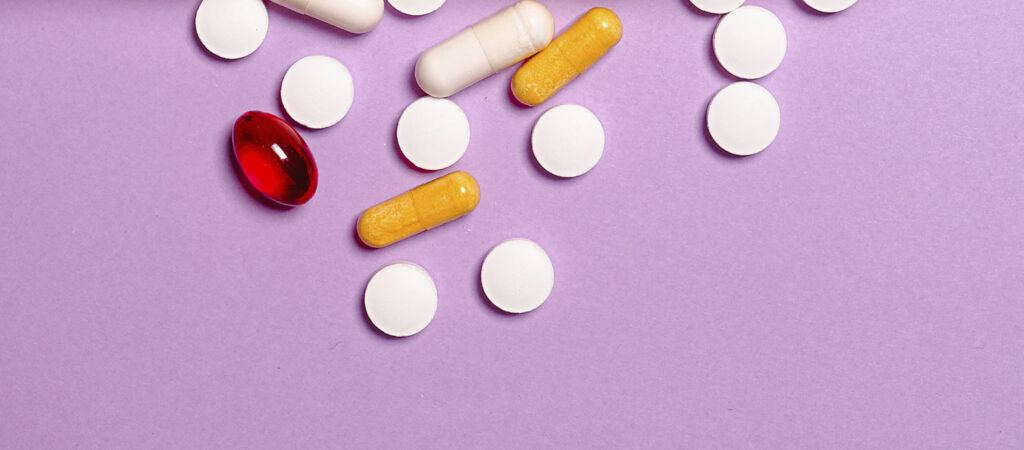The Science Behind Depression Treatments

Medically reviewed by Susan Vachon, PA-C on February 4, 2022
Depression is a bit of a bewildering disease. Its symptoms are well-documented, but at its core, depression still confuses scientists. They aren’t always sure what causes it — or more importantly, how to treat it.
That said, there are scientifically based depression treatments that are proven to work. Many have used these treatments to decrease their symptoms and get back to living a normal life. We’ll explain a bit more about how they work below.
Understanding the Chemistry of Depression
To better understand how depression treatments work, you first need to understand the science behind depression. As we mentioned, scientists don’t know for sure what triggers depression in some people, but they do have some theories.
Nurx offers prescription treatment for anxiety and depression for as little as $0 in copays or $25 per month without insurance.
The prevailing theory is that depression is caused by an imbalance of neurotransmitters in the brain. Neurotransmitters are brain chemicals that relay signals between neurons. In particular, the three main neurotransmitters linked to depression are dopamine, norepinephrine, and serotonin.
Dopamine is primarily responsible for the positive feelings you get after completing a task. Norepinephrine, on the other hand, is linked to your fight or flight response. Finally, serotonin is another feel-good chemical responsible for regulating your mood and helping with your body’s routine tasks.
In depression, you can have lower than normal levels of one or all of these neurotransmitters. There are a number of reasons this can happen. You may not have enough enzymes in your brain to produce new neurotransmitters, or you may lack enough receptors in the brain to receive neurotransmitters. In some cases, neurotransmitters are being reabsorbed before they can reach receptors.
Types of Depression Treatments
To solve the chemical imbalance in the brain, the treatment most medical professionals will suggest is taking an antidepressant. There are a few main types of antidepressants: selective serotonin reuptake inhibitors (SSRIs), serotonin and noradrenaline reuptake inhibitors (SNRIs), norepinephrine and dopamine reuptake inhibitors (NDRIs), tricyclic drugs, and monoamine oxidase inhibitors (MAOIs). Each works to rebalance the brain’s neurotransmitter levels in ways we’ll go into more below.
For some people, though, antidepressants aren’t necessary. They may just need psychotherapy to help alter their patterns of thinking. By talking regularly with a therapist, they can work through their emotions and see life in a more positive light.
While antidepressants and psychotherapy are the two main treatments for depression, there are other, more alternative treatments available. Two such treatments are transcranial magnetic brain stimulation and electroconvulsive therapy, which are thought to help rebalance the brain.
The Science Behind Antidepressants
The main goal of antidepressants is to boost the activity of specific brain chemicals or help your brain reuse them more efficiently. Each drug works a little differently, however.
SSRIs, SNRIs, and NDRIs function by blocking your nerve cells from reabsorbing specific neurotransmitters — serotonin, serotonin and norepinephrine, and norepinephrine and dopamine, respectively. Usually, once a neurotransmitter is done sending a message, it is reabsorbed into the brain. By blocking this process, it can stay available in the brain for longer.
How SSRIs Work
The most commonly prescribed antidepressants are SSRIs. Like the name may suggest, these prevent serotonin from being reabsorbed by the body, making it more available in the brain. But how this happens is something scientists have only recently uncovered.
Research from a 2020 study shows that SSRIs are effective because the flood of serotonin they create causes the brain to produce more of a transcription factor called AP-1. This transcription factor binds to certain genes in your DNA, activating specific sequences responsible for neuronal plasticity and remodeling.
In simple terms, AP-1 can lead to changes in the brain that reverse the neurological impact caused by depression. Your brain rewires itself, so to speak.
How Tricyclics and MAOIs Work
Tricyclic antidepressants work similarly to the inhibitors we mentioned above. However, they are less selective in their functioning, meaning they can cause a lot more side effects. Because of this, they generally aren’t prescribed as first line therapy.
MAOIs work differently. Rather than blocking the reabsorption of certain neurotransmitters, they block the effects of the enzyme responsible for breaking them down. The result is that there should be higher levels of neurotransmitters in the brain. However, they can also block the effects of other enzymes in the body, causing potentially serious side effects.
The Science Behind Psychotherapy
Psychotherapy is another important treatment for depression. While it doesn’t alter brain chemistry in the same way that antidepressants do, it may help you rewire your thought patterns so your brain can function more efficiently.
In particular, cognitive-behavioral therapy (CBT) is when you work to become aware of negative thought patterns and replace them with more positive ones. Changing the way you think can help develop new pathways in the brain.
In particular, psychotherapy can lead to decreased activity in the limbic system of the brain, which is the part of the brain that manages your fight or flight responses and other survival instincts. The dorsolateral prefrontal cortex area of the brain also becomes more active. This is the part of the brain responsible for decision-making, your working memory, mood regulation, and more.
Alternative Depression Treatments
There are two additional treatments currently making waves in the depression landscape. One is transcranial magnetic stimulation treatment. This process hits the brain with magnetic pulses specific to each patient’s unique brain circuitry.
The magnetic pulses are meant to stimulate the dorsolateral prefrontal cortex and the subgenual cingulate, a related part of the brain that’s overactive in people with depression. The magnetic treatment can strengthen the connection between these two parts of the brain so that they work more efficiently.
There’s also electroconvulsive therapy. This involves providing targeted electrical shocks to various parts of the brain. The science behind why this works is still unclear, but researchers think it’s a combination of the scientific processes we’ve explained above. It might help increase neuroplasticity in the brain by causing certain genes to be turned on and by improving connections between certain neural pathways.
Which Depression Treatment Is Right for You?
Hopefully that cleared up a little of your confusion about how depression treatments work. If you’re still uncertain, don’t worry! Now that you know a bit more about the science behind depression treatments, you can feel a little more comfortable talking with a medical professional about which treatment might be right for you.
This blog provides information about telemedicine, health and related subjects. The blog content and any linked materials herein are not intended to be, and should not be construed as a substitute for, medical or healthcare advice, diagnosis or treatment. Any reader or person with a medical concern should consult with an appropriately-licensed physician or other healthcare provider. This blog is provided purely for informational purposes.





